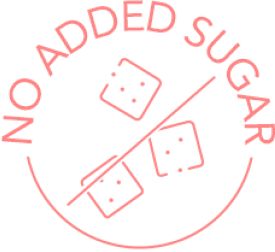How to Reverse PCOS-Related Hair Loss Naturally

Polycystic Ovary Syndrome (PCOS) is a common hormonal disorder affecting 1 in every 8 women worldwide. Coping with irregular menstrual cycles and other PCOS-related symptoms such as mood swings, hair fall, acne, and weight gain can be challenging. Out of the ten symptoms, hair fall is a typical trait that women with PCOS experience.
Seeing your hair in your brush or shower drain is a daily, traumatising struggle. Hair loss is a deeply personal issue that can significantly impact self-esteem, often prompting women to maintain a brave face and avoid discussing it openly. Additionally, the market is driven towards highlighting male-pattern baldness, leaving women with no efficient, genuine, and safe remedies for the cure.
Nonetheless, we have an effective and natural solution for your hair fall.
PCOS, along with its other symptoms, can be overwhelming. In this blog post, we'll delve deeper into understanding the causes of PCOS-related hair loss and how we can reverse it naturally.
Causes of PCOS-Related Hair Fall
- Hormonal Imbalance: Women with PCOS experience increased sensitivity to androgens. An imbalance or abnormal increase in androgen levels, such as DHT (Dihydrotestosterone), is the root cause of hair thinning or loss. In the scalp, DHT attacks the hair follicles and encourages hair miniaturisation, leading to hair thinning.
- Insulin Resistance: About 85% of women with PCOS are insulin resistant. This condition blocks glucose from entering your cells, increasing insulin production. Higher insulin leads to higher androgen production in the ovaries, stimulating hair fall.
- Nervous System Dysregulation: The sympathetic system, activated during stressful times, directs blood flow away from non-essential organs. Women with PCOS exhibit higher sympathetic nerve activity, and the body does not emphasise reproductive organs, skin, or hair, resulting in hair loss.
- Cortisol: Cortisol is a stress hormone that can significantly impact the hair growth cycle. Stress and hormonal imbalance elevate cortisol levels, leading to hair follicle miniaturisation and premature entry into the resting phase (telogen), which in turn results in increased hair shedding and thinning.
- Excessive Scalp Sebum: There's a common myth that washing your scalp frequently leads to more hair loss. However, this misconception is based on false assumptions. If you have an oily, flaky, or dandruff-prone scalp, washing your hair regularly is essential to prevent excess sebum buildup, which can contribute to hair loss.
Now that you are aware of the reasons for PCOS-related hair fall, you must wonder, "Can I reverse PCOS-related hair fall naturally?" Absolutely, yes! Let's find out how!
Steps to Reverse PCOS Hair Fall Naturally
1. Topical Treatments:
- Hair Oil: Hair growth relies on circulation. Massage your scalp with your fingertips in a circular and relaxing motion with our "Rooting For You" hair oil for at least 10 minutes before showering. This oil is formulated with 10 Ayurvedic ingredients that restore hair growth, nourish your scalp, and naturally block DHT growth.
- Scalp Exfoliation: Despite using premium-quality shampoo, our scalp accumulates dirt and flakiness, which can only be removed by exfoliating it at least once a week. A scalp exfoliator with 2% salicylic acid, applied 10 minutes before hair wash, can immensely contribute to healthy hair growth.
- Derma Roller: A derma roller works on the principle of circulation. Start using a 0.5 mm, 540 titanium needle derma roller once a week on the scalp. Later, you can use it twice a week. Derma rollers increase scalp elasticity, improve blood circulation, and focus on hair regrowth.
- Shampoo: Use a clarifying shampoo once every two weeks or as your scalp requires. For all the other washes, stick to a gentle, regular shampoo. Make sure to wash your hair often and maintain a clean scalp consistently.
2. Lifestyle Modifications:
- Diet: Follow a low-glycemic diet and incorporate foods rich in essential nutrients like vitamins and proteins. Include anti-inflammatory foods like omega-3 fatty acids, flaxseeds, avocado, egg yolks, fatty fish, and salmon. You must consume 0.8 grams of protein per body weight for healthy and lustrous hair.
- Exercise: Regular exercise is recommended to improve insulin sensitivity and stabilise testosterone production.
- Stress Management: High stress levels can exacerbate hair loss. Indulge in stress management activities like yoga or meditation to reduce cortisol levels.
3. Blood Work:
- Check your hyperthyroidism, cortisol, DHT, vitamin D, ferritin, and insulin levels. Ensure that the results are on the higher side of the normal range.
Takeaway!
Hair fall and hair growth need to be tackled using a multipronged approach. Preformulated rosemary oils such as "Rooting For You" are natural, cruelty-free, and proven to strengthen hair, improve scalp health, and stimulate hair growth. A cost-effective solution that gives your scalp a difference in under 90 days without any side effects.






